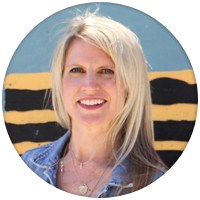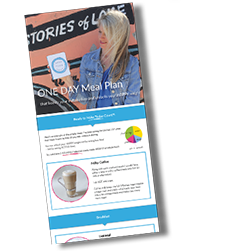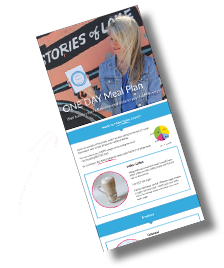
- Early intervention is key with weight loss, drug addiction or anything else
- Don’t be afraid to ask for help
- Passion pulls you over obstacles
Cory Monteith has been on my mind all week.
I’ve never seen Glee. Not because I wouldn’t like it; I just treat watching tv like something to do when everything else is done. But I’m slowly realizing, everything else will never be done!
There’s been so much media surrounding Cory’s death. I’ve read articles, seen newspaper clippings and watched Youtube videos about him. The more I find out about Cory Monteith, the more I like him.
Every outlet has said the same thing: Cory Monteith was down to earth, professional, full of life and as Jane Lynch shared on The Tonight Show, “Cory Monteith was a giver“. She said he was someone who flew across the country on his own dime to see a child with a terminal disease because it was his last wish.
One of my favourite things that is repeated, is that he’s never had a bad word to say about anybody; not even his dad when he reappeared back into Cory’s life after he became famous.
I can’t help but still see him as a 13 year old kid, skipping a grade because he was so clever. But instead of being proud of his abilities, he felt like he didn’t fit in.
Finding a place. For me it wasn’t so much the substances per se, it was more about not fitting in. I hadn’t found myself at all. I had no idea who I was.
– Cory Monteith on why he started doing drugs
When tragedy happens there’s so much to learn
During the shock of tragedy, there’s tons of free energy floating around, looking for somewhere to land. You want to blame someone and you feel angry as you wonder what you could have or should have done to something that can’t be undone.
You examine all these things to try and make sense of the situation.
But once things start to settle, we have to ask ourselves: What can we learn?
3 things Cory Monteith taught us
1. Early intervention is key
Whether it’s an eating disorder or drug addiction or any other hurdle, anywhere down the spectrum, early intervention is key. The longer someone has an unhealthy lifestyle the more they form patterns. And patterns can turn into deeply ingrained habits.
As the old saying goes: A stitch in time saves nine.
Cory Monteith was doing drugs from the age of 13 and his first intervention was when he was 19 years old. That’s 6 years of damage to the physical body and 6 years of drugs being part of his normal.
2. It’s ok to ask for help
It’s a shame that so often we don’t ask and don’t get the real help we need until situations become extreme.
It makes me think of a scene in the movie When a Man Loves A Woman starring Andy Garcia and Meg Ryan. I love this movie. I love to see people turn their lives around. Andy plays a pilot and in one scene, when he’s out of town, his wife returns home to their young daughters, drunk, passes out in the shower and crashes through the bathroom door. It’s not until after that moment, when she’s lying in broken glass, that she finally asks for help.
As a society we must remove all the shame around asking for help.
We need to understand asking for help is a strength.
Asking for help doesn’t mean we have to have a huge problem either. It can be because we want to prevent a huge problem.
3. Passion pulls you through
Cory said to George Stroumboulopoulos:
What I’m trying to do now with this whole ‘I had a hard time’ thing, is to tell people with similar difficulties “find something that inspires you, find something that you can get excited about” and that will become your new direction.
– Cory Monteith
Cory also told Jian Ghomeshi on CBC Radio’s Q that he dropped out of school at the age of 13 because he didn’t like what they were trying to teach him.
Aside from all the obvious things that are out of place for a 13 year old to be able to walk away from school, one thing that really sticks out, that Cory wanted, is the chance to:
Relate what he’s learning to life. Then the curriculum becomes meaningful.
Discovering what you’re interested in helps pull you over obstacles.
My background is in education and I developed the Who Is NOBODY? Program. Gr. 1 to Gr. 12 students participate.
Purpose of Who Is NOBODY?:
Give young people a vehicle to apply the curriculum to real life experiences by using their interests to help people, animals or the environment. Helping others in a personal way gives students a chance to build respect in a way that’s meaningful.
Who Is NOBODY? helps students figure out their strengths and use them to make a difference.
When kids get the chance to discover what Cory Monteith called a new direction, the impact is profound.
I’ve seen:
- Shy kids do announcements to the whole school because they’re so invested in their outreach project
- Over-achievers get passionate about a project and continue their mission rather than focus on perfection
- Young people become rebels with a cause, because they’ve found a positive place to put their energy
All Who Is NOBODY? participants experience a sense of purpose and belonging – something Cory was after – by using what they learn in school, outside of school.
I developed Who Is NOBODY?
because investing in my interests
(being busy teaching children during teacher’s college)
helped me overcome my eating disorder.
I’ve spent time with people who have worked with all sorts of youth-at-risk and they always say there are 2 types of people – givers and takers. Sadly, you can’t help a taker.
Knowing that Cory Monteith was such a giver, I wish there was some way he could have had earlier intervention and/or asked for help after he relapsed. Either of these actions would have helped him practice his powerful message:
Passion pulls you over obstacles and keeps you moving toward your potential.
From my own experience, getting involved helped me get healthy. For years I didn’t participate in anything I cared about because I thought focusing on weight-loss would speed up the process (in my mind I thought reaching this goal proved I was determined). Then I thought I’d be able to move on with my life believing in my ability to reach any goal I set.
But cutting out things I cared about freed up time and energy to put behind the wrong information. I got lost in the details of diet rules, tips and tricks. It wasn’t until I asked for help that I learned what healthy eating and healthy exercise look like. This knowledge helped me lose weight. And when I refocused my energy on my interests, I soon let go of all the hang ups I had around eating. Then navigating food situations became a non-issue. Finding a direction helped me stay on track and get excited about the rest of my life.
There is so much more to learn from Cory Monteith
I wish we could rewind time for Cory and anyone else who’s in a similar situation. But we have to accept what we can not control.
For all the Cory Monteith’s out there, we have the chance to apply what we’ve learned to prevent similar tragedies.
So if you’re engaging in unhealthy eating patterns, don’t wait until it’s an emergency. Eating disorders have the highest mortality rate of all mental illnesses. And if you want to reach a healthy weight don’t wait until your complicated relationship with food is further ingrained. Ask for help NOW!
Weight should not be an obstacle that gets in the way of you discovering your passions and reaching your potential, inside and out.
“Nothing you confess could make me love you less… Let me come along, ‘Cause even if you’re wrong, I’ll stand by you.”

 These kinds of meals and snacks unlocked my HAPPY weight 21+ years ago (I lost 30 pounds without dieting!)
These kinds of meals and snacks unlocked my HAPPY weight 21+ years ago (I lost 30 pounds without dieting!)
You'll also be subscribed to my newsletter. Don’t like it? Unsubscribe in one click

 These kinds of meals and snacks unlocked my HAPPY weight 21+ years ago (I lost 30 pounds without dieting!)
These kinds of meals and snacks unlocked my HAPPY weight 21+ years ago (I lost 30 pounds without dieting!)
You'll also be subscribed to my newsletter. Don’t like it? Unsubscribe in one click




Sharing what I learned makes the 10 years I STRUGGLED worth it
When was a time you asked for help?






Leave A Comment